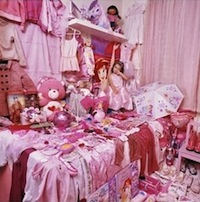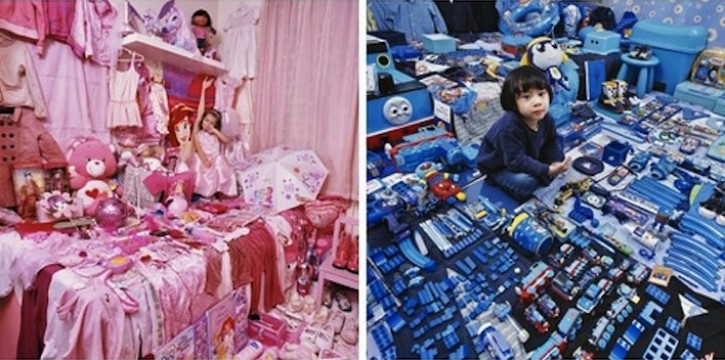
Two British mothers have joined forces to protest what they see as increasing gender stereotyping among manufacturers and retailers who target children. Emma and Abi Moore, twin sisters who have two children each, began their anti-stereotyping campaign, Pinkstinks, four years ago. Emma Moore, who has two daughters, became aware of the problem before her sister, who has two boys, noticed anything was amiss.
According to Moore, retailers in Great Britain color-code toys and products that align with traditional gender roles. Products associated with male gender roles feature blue packaging and signage, while those associated with female gender roles are packaged in pink with pink signage. Furthermore, the products themselves are often pink.
Both sisters agree with other observers that such color-coding effectively locks children into stereotypical roles and activities. Both boys and girls are very conscious of which toys are for girls and which are for boys. As a result, boys who want to practice parenting or housekeeping skills or girls who want to play with science kits or tools receive powerful messages that such activities are inappropriate for them because of their gender.
The Moores experienced opposition to their stance initially, even from their own mother, who was an active proponent of gender equality when they were small. The media also responded to the campaign with the equivalent of a giant roll of the eyes. More recently, however, the response has been more positive, including an award by a mothers’ group for encouraging children to feel positive about their bodies. Retailers have also exhibited signs that the Pinkstinks campaign is having an impact. In some cases, they have removed labels indicating toys were intended for boys or girls.
The pair has recently begun a new campaign, entitled Slap, which is attempting to stem what they see as a recent move by British companies towards producing and marketing makeup and other beauty products to girls as young as two years old. Emma Moore was the first to notice the new trend when her four-year-old daughter received makeup as a party favor. Although Moore discarded the gift as inappropriate, makeup for small children soon became a mainstay in British stores.
The women were originally upset that toys marketed to boys typically focused on work and outdoor play, while those marketed to girls emphasized parenting and housekeeping activities. According to Abi Moore, the focus has shifted. Girls are bombarded with products that emphasize their appearance and encourage them to engage in real or imaginary beauty procedures.
Slap is putting pressure on retailers to stop marketing makeup to preschool-aged children. However, it is also trying to make parents aware of the message such products are sending their children of both genders. Abi Moore believes the products sexualize little girls and encourage both boys and girls to view girls and women as one-dimensional creatures whose purpose in life is to be attractive.
To prevent her sons from buying into the stereotypes, Abi More watches women’s soccer with them and regularly exposes them to movies that feature strong female leads. In spite of Emma Moore’s efforts, her daughter recently insisted that a playset featuring farm animals was only appropriate for boys, citing the blue packaging, blue signage and the boy shown playing with it on the package as irrefutable proof.

Leave a Reply